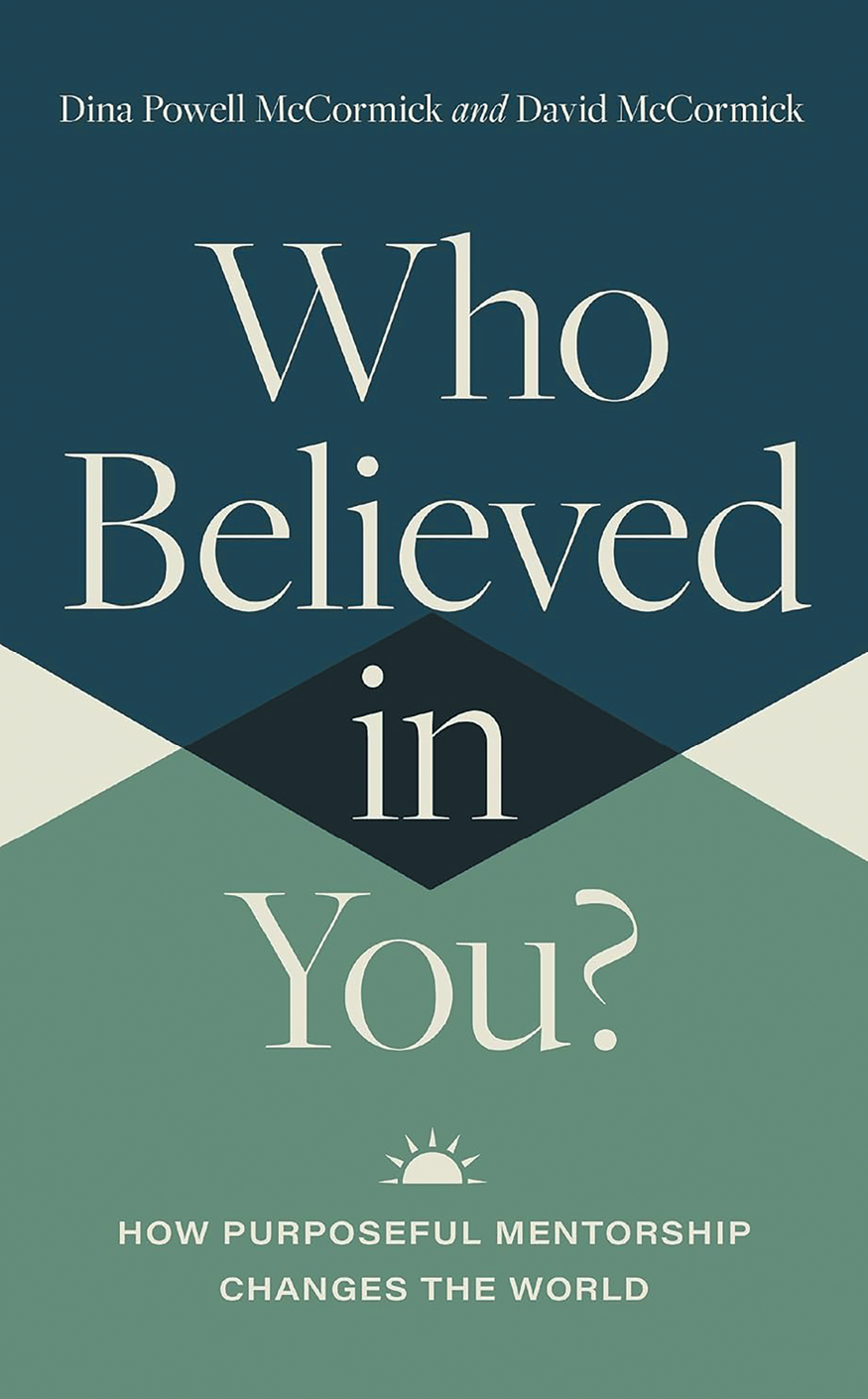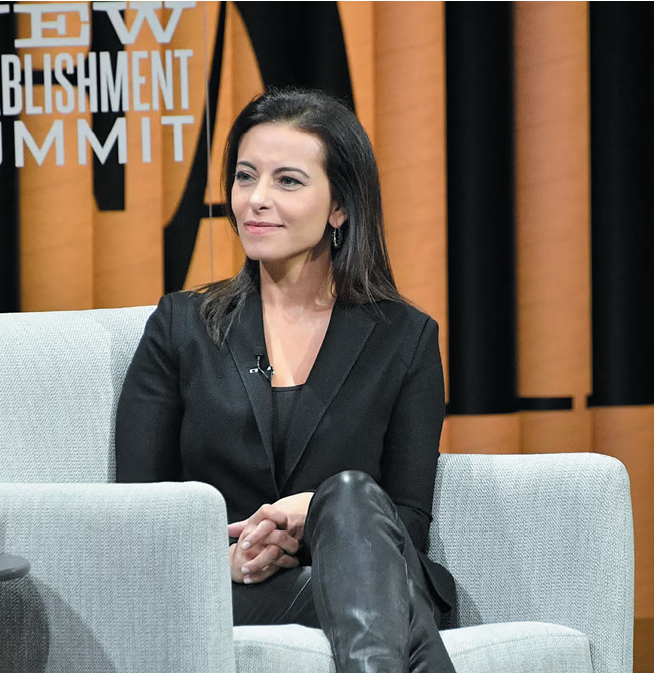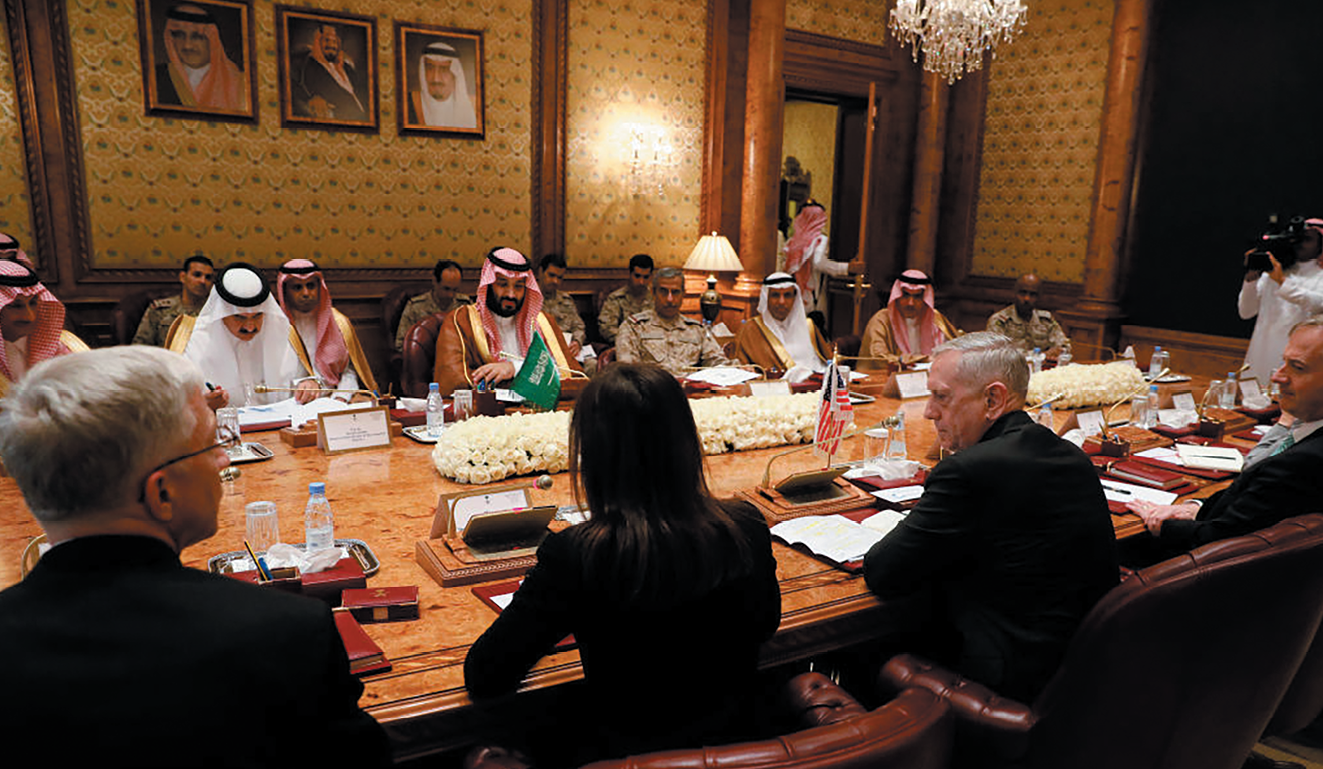- Home
- Media Kit
- MediaJet
- Current Issue
- Past Issues
- Ad Specs-Submission
- Reprints (PDF)
- Photo Specifications (PDF)
- Contact Us
- PRIVACY POLICY
- TERMS OF USE
![]()
ONLINE
![]()
ONLINE

Purposeful Mentorship
Editors’ Note
Dina Powell McCormick is the Vice Chair, President, and Global Head of Client Services at BDT & MSD Partners. Prior to taking this position, she was a partner and member of the management committee at Goldman Sachs. During her 16 years at the firm, she held several leadership positions including global head of the sovereign banking business. As president of the Goldman Sachs Foundation, she led the development of Goldman Sachs’ economic development and mentoring Initiatives, including 10,000 Women, 10,000 Small Businesses, and One Million Black Women – programs that have positively impacted the lives of tens of thousands of entrepreneurs and small business owners around the world. Powell McCormick served at the highest levels of the U.S. government for over a dozen years, including as Assistant to the President for Presidential Personnel and Senior White House Advisor, as well as Assistant Secretary of State and Undersecretary for Public Affairs and Public Diplomacy. In 2017, she served as Deputy National Security Advisor to President Donald J. Trump and worked on the foundations that led to the Abraham Accords – the first peace treaties with Israel and Arab nations in 50 years. Powell McCormick also serves as a board member to the Fortune top 10 ExxonMobil Corporation – with annual revenues of $350 billion and 62,000 employees globally. She is the second woman ever to serve as Chairman of the Board of the Robin Hood Foundation, New York’s largest and most powerful poverty alleviation nonprofit. Powell McCormick is also a board member of Mount Sinai Hospital, The Lincoln Center, and National Geographic Society.

You are releasing a book, co-written with your husband, U.S. Senator David McCormick, titled Who Believed in You: How Purposeful Mentorship Changes the World. Why were you both inspired to write this book?
During the pandemic, Dave and I watched as many Americans – including our six teenage daughters – were left feeling devoid of human connection and without the advice and guidance of mentors. So, we started interviewing influential leaders across America and learning the stories of the mentors that changed their lives. Today, five years later, we’re so proud to announce, Who Believed in You: How Purposeful Mentorship Can Change the World. The book features stories from some of the most influential leaders across industries – from business to Hollywood – sharing how their mentors changed their lives, including Satya Nadella, the CEO of Microsoft; Tory Burch, the founder of the women’s fashion empire; Hollywood producer Brian Grazer; as well as political leaders such as Arkansas Governor Sarah Huckabee Sanders, Maryland Governor Wes Moore, and former Secretary of State Condoleeza Rice.
You can change somebody’s life – and that can change the world. We’d be so honored if you’d consider pre-ordering the book at WhoBelievedInYouBook.com, and all proceeds will go to veterans charities.

You have built some of the world’s most effective leadership and mentorship programs. What made them so successful?
I was fortunate both in government and the private sector to work on teams that developed some of the most effective and successful mentoring programs. While I served as assistant secretary of state, I led the development of the State Department Fortune Global Mentoring Program. While serving as president of the Goldman Sachs Foundation and a member of the management committee, we built some of the largest and most effective mentoring programs: 10,000 Women, 10,000 Small Businesses, and One Million Black Women. These programs fostered economic growth by providing entrepreneurs with business education, mentoring, networking, and access to capital.
What I found was that when mentors start working with mentees, the results are immediate because entrepreneurs can feel the impact of working with an experienced business leader quickly. This is not just intuition but based on real data – program graduates saw real revenue growth and job creation in their businesses.
Successful mentorship requires both a mentor who is really motivated and eager to help a mentee and a mentee who’s open to that engagement and takes their feedback seriously. That’s why in the book, we lay out four pillars for transformational mentoring: encouraging trustworthiness in future leaders; instilling future leaders with core values; commitment of time and resources from established leaders and the mentee; and building confidence in the recipients.
“What I found was that when
mentors start working with mentees, the results are immediate because entrepreneurs can feel the impact of working with an experienced business leader quickly. This is not just intuition but based on real data – program graduates saw real revenue growth and job creation in their businesses.”
You are one of the few leaders in the world that worked at both the highest levels of the U.S. Government and in finance on Wall Street. How, as a leader, did you operate in such different environments, and what leadership lessons did you learn?
Effective leaders learn to be agile and know how to work in different environments. In government, successful officials work to build consensus among stakeholders both inside and outside of government to implement the policies and priorities of the President and your principal. That often means working with other agencies and across the political aisle. But you also have to recognize that you are just one member of a much larger team. Since you do not always have a direct line of authority, collaboration is the only way to succeed.
In the private sector, you are often operating on a longer time horizon. Business leaders balance the demands of pursuing excellence and delivering on performance goals with building the most outstanding teams possible. Executing the mission requires leveraging both your own abilities and having top talent around you. The only way to recruit and retain top talent is mentorship and developing a reputation for investing in your team’s long-term careers, whether they remain on your team, advance within the firm, or go elsewhere. Over time, this approach ensures that talent continues to come in the door because they trust that leadership will invest time and resources into their future success.

Former U.S. Secretary of Defense James Mattis
with then Deputy National Secretary Advisor Dina Powell McCormick
attend a meeting with Saudi Crown Prince Mohammed bin Salman
and officials in Riyadh in April 2017
You were often one of very few if not the only woman in the room, whether it was in the Oval Office, the Situation Room, or at Goldman Sachs where you served on the Management Committee and Partnership Committee, as well as global head of the firm’s sovereign business. What were specific leadership traits you learned from those experiences?
I learned very early in my career that I had to understand the different leadership styles exercised by men and women and the specific traits and priorities of the many leaders with whom I worked. Two lessons stand out. First, you have to learn not to take things personally and really try to understand the mission and what leaders can play a distinct role because there are often fewer in the room. Women are often the voices engaging people and bringing them together. That was borne out in survey data we commissioned for the book – men were more likely to cite “power” and “prominence” as qualities that drew them to their mentor, while women cited “authenticity” and “good listener” at higher rates.
You’ve also been a philanthropic leader with National Geographic, The Lincoln Center, and Mount Sinai, and now you chair the Robin Hood Foundation. Will you discuss this work?
As a board member, you have the opportunity to give input that brings business principles to these philanthropic missions. The most successful nonprofits are run like corporations with a business plan, budget, and communications strategy. At the Robin Hood Foundation, we help elevate and fuel New Yorkers’ permanent escape from poverty by applying investment principles to grantmaking to New York City’s most impactful community organizations. As board chair, I am focused on putting Robin Hood on stronger financial footing and recruiting and installing new board members to sustain its success.
You’ve spent nearly 30 years working in the Middle East both in investment and finance and in national security positions. What are leaders doing to transform the region?
The Middle East is undergoing several geopolitical transformations at the same time. As someone who has traveled to the region for 25 years, I see enormous opportunities for its leaders, their people, and investors. Israel has significantly degraded the military threat posed by Iran and its proxy network across the region since the brutal massacre perpetuated by Hamas on October 7, leaving a power vacuum that puts the futures of Gaza, Lebanon, and Syria in different hands. At the same time, many leaders in the Gulf are implementing economic, social, and political reforms to position their countries for the 21st century. These reforms are imperfect, but standing by these partners advances U.S. national security interests.
As the former deputy national security advisor in the first Trump Administration, you worked closely with the President on his initial engagement with the Gulf countries. These efforts were the foundation for the Abraham Accords. What did you learn from that experience?
The Abraham Accords were Israel’s first normalization breakthrough in 50 years and a historic moment for peace in the region. But the Accords were also remarkable because they completely overturned decades of baked-in assumptions about the region and replaced them with creative approaches to expand peace and security. And through it all, the United States stood with its allies and partners and brought them closer together.
The lesson here is clear: sometimes rejecting what came before and trying something new is the only way to move forward. Leaders need to give unique and different ideas a chance when the same old approaches continue to fail.
How do you approach your position as a corporate director on the ExxonMobil board?
Business acumen, industry knowledge, and being agile in responding to markets remain keys to success in the private sector. But the pace of domestic and international political developments also demands having people around you who understand national security, geopolitical, and regulatory issues. That’s why you’re seeing more and more corporate directors like me who have these skill sets and can help leaders think through how corporations should adapt to political risks and opportunities.
Will you highlight your role as Vice Chair of BDT & MSD Partners?
As Vice Chair, President, and Head of Global Client Services, I draw on my years of experience in the public and private sectors to broaden and deepen relationships throughout our global client network of founders, family business owners, and strategic, long-term investors. I also have the opportunity to work with great leaders, including Michael Dell, founder and CEO of Dell Computers, as well as Byron Trott, Chairman and Co-CEO, and Gregg Lemkau, Co-CEO of BDT & MSD Partners.![]()